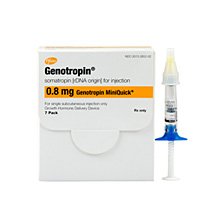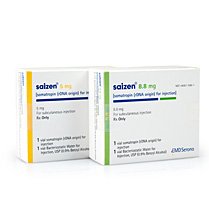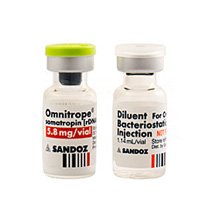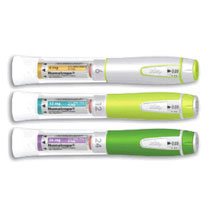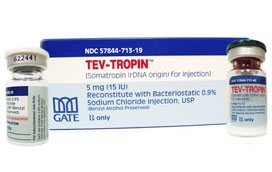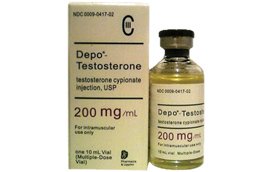9 Signs of Low Testosterone in Adults

It is common for all adults to experience a decline in testosterone production as they age – men begin this decrease in their late twenties to early thirties and women around the time of menopause.
Low testosterone levels do not always cause changes in the body as many people naturally adjust to decreasing hormone production when they get older. Unfortunately, that is not the case for everyone.
If you are one of the many men and women experiencing low testosterone symptoms, you know that your life has taken a different turn from the one you expected for your middle-aged and older years. The vitality and exuberance you once had are long gone, and you want them back.
Testosterone deficiency, or Low T as it is often called, manifests itself in many ways due to the numerous areas of functionality it plays in the body. That is why doctors sometimes have a hard time pinpointing the problem if they do not know what they should be looking for as the signs of Low T.
Although the symptoms of testosterone decline are many, we are listing the nine most common signs of Low T below:
| Fatigue | From low energy to lack or endurance to insomnia and sleep difficulties, running out of steam is a likely reaction to testosterone decline. |
| Low Libido | Testosterone supports a healthy sex drive in men and women. Aside from a lack of desire and arousal, men may experience erectile dysfunction and women often suffer from vaginal dryness. |
| Weight Gain | Low testosterone levels slow down the metabolism, leading to the storage of visceral fat. Additionally, when too much testosterone is converted into estradiol (estrogen), fat storage also increases, putting you at a higher risk for obesity, heart disease, and diabetes. |
| Muscle Loss | Testosterone has an anabolic (muscle-building) impact on the body. Low T puts the body in a catabolic state that leads to muscle breakdown, and, subsequently, reduced strength. |
| Joint Pains | Testosterone has both a direct and indirect (via the growth hormone/IGF-1 process) effect on bone mass, breaking down bone quicker than regrowing it. This often leaves a person feeling stiff, achy, and subject to an increased risk of osteoporosis. |
| Mental Fog | Testosterone receptors in the brain areas associated with memory and attention require important signals from this hormone. When a person has Low T, these signals do not arrive in abundance, causing problems with memory, cognitive functions, focus, and learning. |
| Depression | Mood changes, including depression, anxiety, and a poor outlook for the future are common with Low T. |
| High Cholesterol | Low T often leads to high LDL (bad) cholesterol and triglyceride levels, which can increase the risk of atherosclerosis, heart attack, and stroke. |
| Hair Loss | Testosterone can have a direct impact on hair growth, and, if too much testosterone is converted into dihydrotestosterone (DHT), balding and thinning hair becomes a reality for both sexes. |
Why Men and Women Get Low Testosterone
Men and women can get low testosterone for a number of different reasons, although the most common is aging. Testosterone, like other hormones, naturally decreases with age.
The most common causes of low testosterone in men and women are outlined in the two charts below:
Reasons for Low Testosterone in Men
|
|
Reasons for Low Testosterone in Women
|
|
How to Increase Low Testosterone Levels with Testosterone Therapy
Low T is easily treatable with testosterone replacement therapy (TRT).
Although the condition manifests itself in many of the same ways in men and women, low testosterone treatments will differ significantly due to the higher need males have for testosterone in their bodies.
Men have numerous options for testosterone therapy, as shown in this list that highlights them in the order of preference:
- Testosterone cypionate injections – given, on average, once every two weeks
- Testosterone enanthate injections – given, on average, once every week
- Testosterone patches – applied to skin daily
- Testosterone gel – applied to skin daily
- Transbuccal testosterone pellets – adheres to the gums and applied twice a day
- Implantable testosterone pellets – requires surgical implantation and removal (if necessary)
Oral testosterone is not recommended due to a high level of toxicity.
Testosterone cypionate and enanthate injections are the two lowest priced options and offer the best absorption into the bloodstream. Testosterone patches and gels have a much higher cost and risk for cross-contamination for other people and pets, and their absorption rates per person are unknown. Transbuccal and implantable testosterone are rarely recommended for use.
For women, low testosterone treatment consists of testosterone cream compounded by a pharmacy to the prescribed dosage.
7 Natural Ways to Boost Testosterone Production
Once testosterone levels become extremely low to the point where numerous symptoms occur, it is often necessary to use TRT to raise testosterone levels.
Before that time, there are some natural ways to boost low testosterone levels, as shown below:
7 Natural Testosterone Boosters
| Sleep – get between seven and nine hours each night |
| Intermittent fasting – eating all meals between noon and 6 pm is optimal |
| Exercise – heavy weight and interval training targeting the large muscle groups works best |
| Avoid sugar – high consumption of sugar increases blood glucose levels, increasing the risk of diabetes and lowering testosterone levels |
| Nutrition – consume heart healthy fats every day, such as avocados, nuts, seeds, and extra virgin olive and coconut oils |
| Reduce stress – when you are stressed, the body increases cortisol production which inhibits testosterone and growth hormone secretions |
| Supplement – vitamin D and zinc are crucial for testosterone production |
The hormone specialists at Greenberg Health are here to answer your questions about low testosterone and other hormonal imbalances. We offer free consultations, convenient local diagnostic testing facilities, and affordable treatment options for men and women throughout the US.

















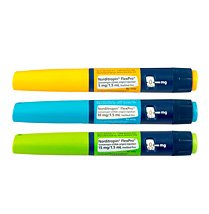
 Norditropin
Norditropin